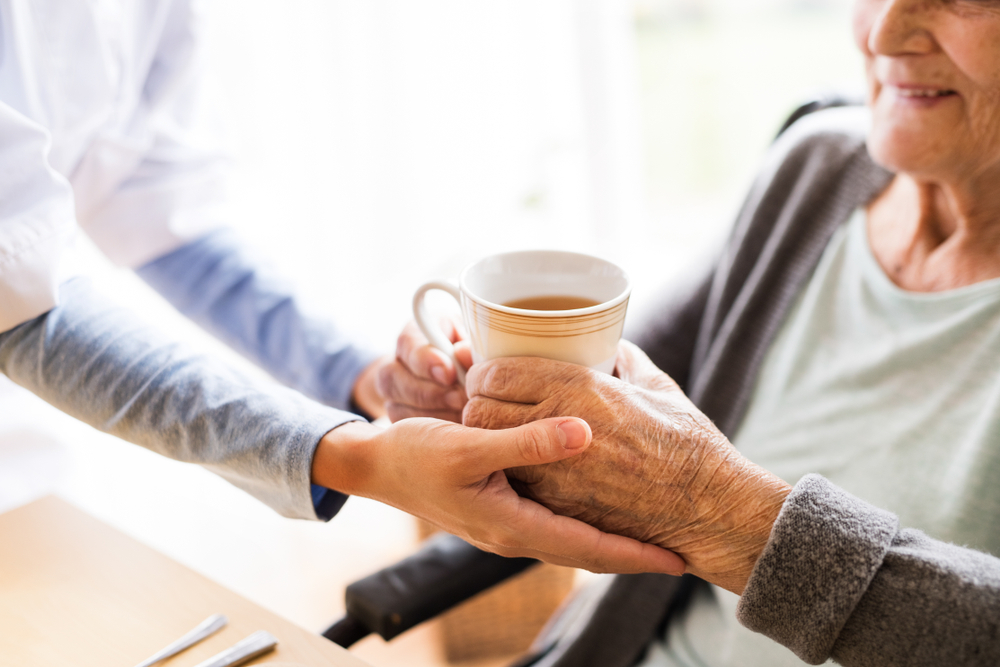Switching to decaf could prevent thousands of falls per year, care home trial suggests

In a first-of-its-kind trial, care home residents were offered decaffeinated hot drinks in a bid to reduce falls experienced rushing to the toilet.
Switching care home residents to decaffeinated coffee could lead to a substantial reduction in toileting-related falls, data from a trial has indicated. The trial was conducted across eight Stow Healthcare residential care homes over six months and saw roughly 300 residents given the chance to blind taste-test caffeinated and decaffeinated drinks.
The trial was instigated after staff noticed several residents falling on their way to the toilet. They suggested switching residents’ drinks to reduce bladder and bowel urgency for those with an overactive bladder or incontinence. the trial resulted in a 35 per cent reduction in toileting-related falls over three months, between June – November 2023 and follows a similar initiative by University Hospitals of Leicester NHS Trust (UHL) in 2021.
According to a joint report published by Care England, Stow Healthcare and UHL, if scaled across the care sector, the switch to decaffeinated drinks would mean thousands of falls prevented and could save the NHS as much as £85m per year.
Falls are the most common cause of injury-related deaths in people over the age of 75. People living in care homes are three times more likely to fall than those living at home; they are generally more frail, less mobile and have a higher prevalence of incontinence than the general population.
More than 90 per cent of residents chose to take part in the trial after being told about the potential health benefits of making the switch, with the choice of caffeine always available on request.
Residents, staff and families at Stow Healthcare’s facilities have described the “huge difference” made by switching to decaf and pride in being a part of the trailblazing trial.
The report authors describe the simple switch as “ground breaking” and are now encouraging other care providers to “give decaf a go!”
The full report can be accessed here.
Professor Martin Green OBE, Chief Executive at Care England, said: “Falls have a detrimental impact on thousands of older people every year, not to mention the knock-on cost to the NHS. When we first heard about the results of UHL’s decaf trial in a hospital setting, the potential benefits for social care were immediately clear. For such a simple, cost-neutral solution to have such a profound impact is extraordinary. With a huge national focus on reducing pressure on the NHS, this pioneering trial demonstrates that simple solutions can help address enormous challenges. Care England is delighted to have been involved in this project and would encourage care providers across the country to give decaf a go!”
Ruth French, Director at Stow Healthcare, said: “The decaf project has been eye-opening for all of us at Stow Healthcare. Our residents and staff have been fully engaged in this project from the moment we launched. To achieve a falls reduction of 35 per cent connected to going to the loo is a significant finding for us all in social care. The impact of a serious fall can have devastating consequences, and finding simple ways such as decaf drinks that might reduce this risk is ground-breaking. We hope it will inspire everyone in social care to take up the challenge!”
Sarah Coombes, Continence Nurse Specialist at University Hospitals of Leicester NHS Trust, said: “Ever since implementing the original ‘Taste the Difference Challenge’ at UHL, my dream has been to see it rolled out nationally and into the community setting. I hope that this will inspire other care providers to follow suit and to promote this simple change to improve patients’ continence and reduce the risk of falls.”
Andrew Selous MP, Chair of the APPG on Bladder and Bowel Continence Care, said: “The findings from Care England, Stow Healthcare and UHL’s decaffeination trial are extremely encouraging. At a time when our NHS and social care system are facing real pressure, decaffeination appears to have emerged as a solution hidden in plain sight. The APPG on Bladder and Bowel Continence Care is committed to finding wholistic solutions to support people with continence issues to live well and this initiative represents exactly that. We now need to look at how these findings can be expanded to deliver positive outcomes for people nationwide.”